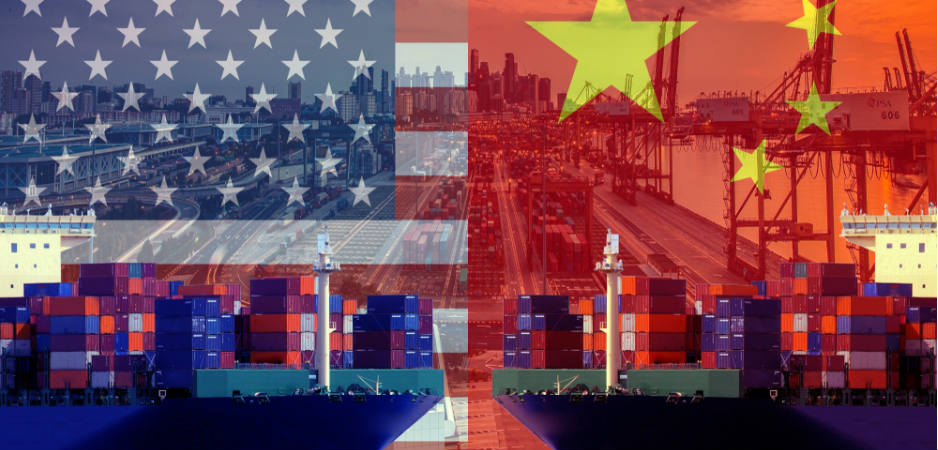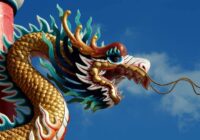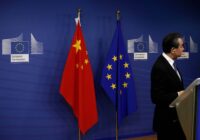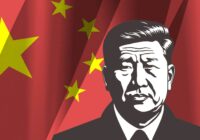Not since the modern liberal order was born in the 1940s has the world had to grapple with the possibility of its demise — at the hands of a rising China.
China and the United States remain engaged in the most serious trade dispute the world has seen in generations. Today, English remains the world’s predominant language, the US is the world’s largest economy and the dollar its reserve currency, Google is the world’s primary search engine and Facebook the largest social media platform. But in 30 years, once China’s Belt and Road Initiative is completed, Beijing’s ability to project its soft and hard power will be greatly enhanced. If predictions prove correct, China will in a few years become the world’s largest economy, and parents around the world will ensure that their children speak Mandarin (if they do not already).
Once the Chinese government makes the yuan fully convertible, it could well become the world’s reserve currency, and given the growth in Chinese speakers, it could well be Baidu that becomes the world’s predominant search engine, and Weibo that supplants Facebook. The growth in the Chinese middle class, already larger than the US, will help ensure that China weans itself of overdependence on exports to sustain growth and becomes increasingly self-reliant for economic development.
If President Xi Jinping has his way, it will be China that is the world’s center of gravity. The coming Chinese world order is likely to be devoid of the kinds of checks and balances we take for granted in the post-World War II system. Rather, it is more likely to be akin to a transaction-driven landscape where the strongest party rules, and the weak are considered collateral damage. This transformation has already begun, and as it is occurring, the US and many other countries are essentially asleep at the wheel. As domestic crisis upon crisis piles up, the world’s leading Western economies continue to turn their attention inward, preoccupied with political and economic issues at home and functioning with unipolar blinders on. Many of the world’s leaders fail to see all that Beijing is doing and fail to appreciate the implications for the future.
Not since the modern liberal order was born in the 1940s has the world had to grapple with the possibility of its demise — at the hands of a rising China. Just at a time when the world is in need of the stability and good governance it has had the luxury of relying upon for decades, it must contemplate transitioning to a world order not of the West’s choosing. Clearly, the era of US hegemony is coming to an end. Will the global institutions it was so instrumental in creating become less relevant and influential with time? Will Beijing be successful in crafting new institutions derived from a Chinese footprint? If so, will good governance and rule of law be consistent with such organizations? Only time will tell, of course.
What is certain is that Beijing’s realization of the Chinese century is sure to be infused with precepts and applications that are uniquely Chinese. The world has yet to fully contemplate all that this portends, but President Xi wants to achieve a pathway that guarantees the supremacy of China throughout this century and beyond. He is likely to do just that, for he has a vision not only for how China reigns supreme in the economic, political, diplomatic, technological and, eventually, military arena, but also how it gets there.
That is certainly more than can be said for the United States at this juncture, much less of other Western powers that appear to be sitting on the sidelines as Beijing smashes barrier after barrier for how things get done. Xi deserves credit for having a vision of the future and for acting swiftly and decisively to achieve it — whether in the area of technology (where China is outspending Silicon Valley to achieve AI supremacy), building the world’s largest navy by number of ships (currently in second place behind North Korea), landing a probe on the dark side of the moon as evidence of its growing strength in the field of science, or seeking to influence the world’s media. China is engaged in a multi-pronged effort to become influential in a wide spectrum of areas of global importance.
Let us hope that Beijing’s tendency to elbow its way to the front of the line, find a way to get more or less whatever it wants from the world’s poorest and weakest nations, and at time ignore the rule of international law yields to a kinder, gentler China in the future that shows evidence of a respect for the established international order and well-worn rules of the road. The current international system did not come about quickly, or by accident. It was established as a result of a deliberate effort to be transparent and inclusive, placing a premium on governance and the rule of law.
If China really wants to achieve top-tier rankings in the areas it considers important — and do so in a manner that helps ensure its longevity — Beijing should seek to enhance, rather than supplant, the very world order that has enabled it to rise to become the global power it already is.
The views expressed in this article are the author’s own and do not necessarily reflect Fair Observer’s editorial policy.
Support Fair Observer
We rely on your support for our independence, diversity and quality.
For more than 10 years, Fair Observer has been free, fair and independent. No billionaire owns us, no advertisers control us. We are a reader-supported nonprofit. Unlike many other publications, we keep our content free for readers regardless of where they live or whether they can afford to pay. We have no paywalls and no ads.
In the post-truth era of fake news, echo chambers and filter bubbles, we publish a plurality of perspectives from around the world. Anyone can publish with us, but everyone goes through a rigorous editorial process. So, you get fact-checked, well-reasoned content instead of noise.
We publish 2,500+ voices from 90+ countries. We also conduct education and training programs
on subjects ranging from digital media and journalism to writing and critical thinking. This
doesn’t come cheap. Servers, editors, trainers and web developers cost
money.
Please consider supporting us on a regular basis as a recurring donor or a
sustaining member.
Will you support FO’s journalism?
We rely on your support for our independence, diversity and quality.






